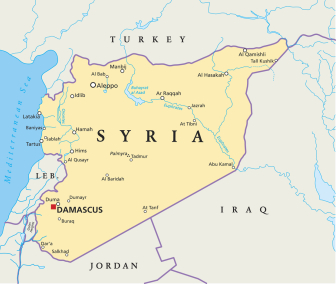Christian Solidarity Worldwide has decried the passing of a United Nations resolution it warns could be abused by some countries to silence religious communities.
The “Combating Defamation of Religion” resolution was passed by the UN Human Rights Council with 23 votes in favour and 11 votes against with 13 abstentions.
The resolution was passed in spite of huge opposition from rights groups. CSW was one of more than 180 NGOs worldwide to last week call on governments to reject the resolution, put forward by Pakistan.
A joint statement issued by the NGOs warned that “defamation of religions resolutions may be used in certain countries to silence and intimidate human rights activists, religious dissenters, and other independent voices”.
Speaking ahead of the vote, the Canadian delegate to the Human Rights Council expressed concern about the resolution, stating: “We have difficulty… with calls for the protection of religions themselves rather than the protection and promotion of the rights of the adherents of religions, including a person’s belonging to religious minorities. It is individuals who have rights, not religions."
CSW said it feared that the passing of the resolution would give strength to efforts by the Organisation of Islamic Conference to put “defamation of religion” at the centre of discussions at the United Nations Durban Review Conference in Geneva in April.
CSW’s Advocacy Director, Alexa Papadouris, said: “Unfortunately these resolutions seek to undermine the very principles we were celebrating just last December with the 60th anniversary of the adoption of the Universal Declaration of Human Rights.
"They attack freedom of expression and freedom of religion and seek to protect powerful governments at the expense of often powerless individuals.
"We therefore call on governments to reject defamation of religion in whatever form it should take at next month’s conference in Geneva and reaffirm the protection of religious believers through existing international human rights law.”
CSW decries passing of UN defamation resolution
News

Gluttony and the Holy Spirit’s fruit of self-control
This excessive indulgence goes against the Christian spirit of self-control and can lead to adverse spiritual and physical consequences.

Christian activist's arrest for anti-monarchy slogan was unlawful
A left-wing Christian activist who shouted “who elected him?” at a proclamation ceremony for King Charles III was arrested unlawfully.

Nazanin Zaghari-Ratcliffe talks about Iranian imprisonment ordeal and her faith
Nazanin Zaghari-Ratcliffe has spoken about her six years of imprisonment in Iran and her complex relationship with faith during and after her ordeal.

Trump and Europe’s defence dilemma
Europe’s long-standing reliance on US defence support is being tested as Trump’s renewed "America First" stance challenges NATO commitments, trade relations, and the future of Western security.



